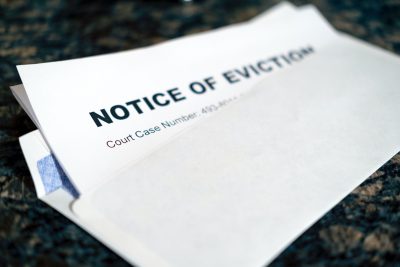An Edinburgh tenant has been awarded a first ever Wrongful Termination Order by the Housing and Property Chamber of the First-tier Tribunal for Scotland. In this landmark case, the landlord was ordered to pay £1,350 for evicting his tenant on false grounds.
Jesus Rodriguez-Ortega rented a studio flat from Cesar Dominguez-Lopez. When Jesus asked his landlord for repairs to the property, he was handed a notice to leave on the ground that the landlord intended to move into the flat.
Acting for the tenant, Community Help and Advice Initiative (CHAI) submitted the history of the tenancy to the First-tier Tribunal, as well as evidence that the landlord had threated his tenant with eviction. CHAI also argued that the landlord’s intention to move out of a three bedroom property he owned and lived in with his partner and their child, in order to move into the studio flat, was not credible. However, the Tribunal held that the requirements set out in the PRT regime for landlords seeking eviction had been met and it granted the order for eviction.
Tribunal’s ground-breaking decision
CHAI assisted Jesus further when he applied to the Tribunal for a Wrongful Termination Order. It was then proved that the landlord and his family didn’t move into the studio flat as claimed before the Tribunal in the original eviction action. In fact, the property was found to have been repaired and redecorated within less than a month, and also occupied by new tenants.
Having misled the Tribunal, the landlord was ordered to pay equivalent of three times the monthly rent under the original tenancy.
Commenting on the case, Andrew Wilson of CHAI and Project Manager for Edinburgh Housing Advice Partnership, who represented the tenant, said: “Although the tenant was granted the Wrongful Termination Order, he should never have been evicted in the first place. The Scottish Government must act to ensure tenants have access to free expert assistance, but it must also revisit the standard of proof to be met for granting evictions from PRTs and other private sector tenancies. That can be done easily by retaining some of the emergency measures introduced to help counter COVID-19, especially the requirement for landlords to prove eviction is reasonable in the circumstances.”
He added: “Above all, this case demonstrates the importance of tenants being able to access free expert advice and representation. Tenants deserve assistance while good landlords and Scots society as a whole deserve the assurance that the law will be upheld and rogue landlords will be held to account for their actions. Yet the availability of such services is under real threat, especially with local authorities under pressure to cut expenditure.”











